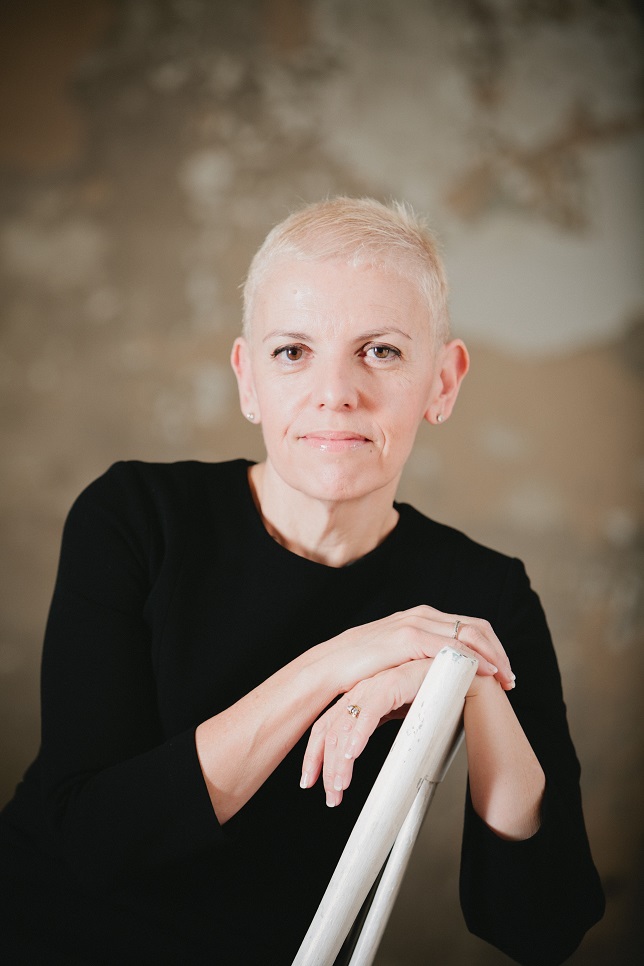Sex & Fertility
“Although the conversations, especially in the beginning, were brutally difficult, they helped us in the long run.” -Anonymous
Advanced illness often comes with changes to our sexuality and fertility. We talk about how the side effects of our treatments have affected our innate sense of sexuality and our physical ability to have sex. We discuss how we have found new ways of exploring sexual intimacy and communicating with our partners. We also describe our emotions surrounding fertility and the grief that comes with losing the ability to have children.
I was 18 years old when I was diagnosed with a rare form of brain cancer.
Before they started the radiation and chemo, they talked to me about a referral to the fertility clinic and banking and freezing my sperm. It was a pretty awkward and strange conversation to be having as an 18 year old.
I went ahead and got my sperm stored but it turned out it was another financial stress for me.
There was cost for the initial storing, the testing and now continuing to store it for $300 a year. I am hoping to get a fertility test soon to see if I need to keep paying for storage. Just not what I was thinking about at 18 or even now at 20 and the cost with all the other financial stress is a burden for sure. It feels unfair that at 18 I was forced to think of a future where I may not be allowed to have children because I am no longer fertile or because I didn’t pay for the preventative measures needed.
The thoracic surgeon told me that my new chemo-regimen would leave me unable to have children.
It hadn’t really crossed my mind with the first chemo-regimen. I had pretty good odds of staying fertile with that one, but apparently, the toxicity is cumulative, and my odds of infertility jumped from 25% to 99%. He said it in a blunt matter-of-fact way, and as soon as I heard the words I had a full-blown panic attack. Thank goodness the nurses jumped in with a paper bag to help me stop hyperventilating. I cried for days. I’ve never cried that much in my whole life. The nurses tried to help. One of them even brought me to a fertility clinic to discuss my options. I have none, and even if it were available, it would be too expensive, but somehow that visit helped me come to terms with my new reality.
One night a few months later, I was suddenly unable to breathe without stabbing pain, and I was rushed for a CT scan.
At this point, the initial shock of the news of infertility had been replaced with a new reality; a terminal diagnosis. My focus was now on living in the moment, trying to make the best of each day, celebrating each part of my body that hadn’t failed yet. My new hope wasn’t to have children but to live long enough to see another spring.
Fertility and the inability to have children is perhaps the most difficult.
I had a meeting with fertility doctors who told me that they don't provide IVF treatment for people with Stage IV Cancer. For one, I would have to go off of my cancer treatment. Two, it would be incredibly dangerous with my hormone-positive cancer. My doctor also told me that I would never be able to adopt a child and explained that even people who were in remission or ostensibly cured would be turned down, even with a healthy partner. I understand if you are Stage IV and the adoption agency wanting to have two healthy parents, but even with one parent who could live a long time, adoption is not an option through an agency. We all live with the possibility of death, and most young adults can't afford the cost of IVF. The costs are astronomical, up to $100,000 if I was allowed to do it. It is really out of reach for many young people who are early in their careers or paying off students loans unless they have a lot of family and community financial support.
I wasn’t the only one to care about my loss of fertility.
When I was about to go into the CT scanner one night, the technician realized she would have to double back to grab the lead vest, I felt comfortable enough with her to say “don’t worry, just start the scan, I can’t have children anyway.” She paused and looked at me in a way that cut right into my soul, filling the hole of isolation I had felt in the preceding months, as I had come to grips with the grief of infertility all by myself. One could say that it was a tragic moment in a way to have tears in a moment of panic, but it’s a moment that was so real and so raw, that it gives me strength every day knowing I am never truly alone. That night I was faced with an undeniable reality: I was surrounded by so many people, just like the technician, who care deeply and they are all around me. These people aren’t just trying to save my life when they do their jobs, they care about who I am, and the quality of my life, on all levels.
Advice from Health Care Providers
Sexuality
Sexuality is a term that is used to describe who we are attracted to and how we see ourselves as sexual beings, as well as how we enact our sexual feelings. It is about more than what we do sexually with or without a partner. We remain sexual beings even close to or at the end of life, even though this is not talked about and remains somewhat of a taboo. Sexuality near or at the end of life is about connection and validation of who we are as individuals and our feelings about a partner, or longing for a partner if single. Acting on these feelings is complicated in part because of symptoms such as pain, weakness and the side effects of medication. There are also logistical barriers to sexual expression including lack of privacy in hospice or home, where family and staff may be ever present. While sexual intercourse may not be possible, there should be no boundaries placed on touch and other erotic activity. Mutual or solo masturbation, oral sex or sensual massage can help to provide comfort and connection, but you have to ask for and be allowed the privacy that you need to maintain this important aspect of who you are, no matter where you are.
Fertility
Many people imagine that one day they will have children in the future. This does not apply to everyone of course and some people are ‘childless by choice.’ Cancer takes away the choice for some, and this can be devastating. Depending on the age at which you are diagnosed, the need to start treatment on an urgent basis, or because of finances, some people with cancer are not able to bank sperm or eggs. This can cause tremendous sadness and frustration later in life when they are ready to have children. For those facing the end of life, the missed opportunity to have the experience of having a child, or leaving a legacy in the form of a child or children, can be even more distressing. It is important to recognize this distress and to mourn the lost opportunity. There is no easy solution to this longing, and while some may offer platitudes, these do not take away the sense of loss and grief. It can be hard to talk to family and/or friends about this as they may also be feeling very sad, or are not able to find the words that might bring comfort to you. If you are experiencing feelings of sadness or distress at not being able to have a child or more children, it may be helpful to talk about this with a professional.
Resources
- Young Adult Cancer Canada
- Localife
- StupidCancer
- Lacuna Loft
- LIVESTRONG: Adolescents & Young Adults
- National Cancer Institute
- CanTeen
- Teenage Cancer Trust
- Teenagers and Young Adults with Cancer
- YouCan Ireland
- This Should Not Be Happening: Young Adults With Cancer
- Women Cancer Sex
- Men Cancer Sex
- Sex When You’re Sick




Julie Michaud
My husband has been completely empathetic and understanding.
He's never once tried to force anything upon me or anything like that. He's never talked down to me about my desires or lowered abilities. We've always been able to talk about the issues normally. I'm one of the few young adults with cancer, apparently, that still has a sex-drive going, so I do still want to have sex quite often, but my body is sometimes unable. I also still have my period. I was hoping I'd be rid of that thing, but it's still there. The good thing about it is that I have it on time. I still have lingerie and I wear it when I want to and I try going out a couple times. With us, even just cuddling on the couch, it's great that we can do that together. We can work together on a lot of it. For example, when I was having issues with pain from vaginismus, he never rushed me on any of it. I went to the doctor and talked about it with them, about the issues and they helped me come with up with solutions.
Anonymous
My vagina hurts.
Is this how 80-year olds feel? If so, how do they have sex? My premature menopause ended a few weeks ago, but now, not only have I lost any sex drive but my vagina hurts too much for sex, and my skin has become too sensitive for lube. I told my symptom-management doctor about this. I know he wasn’t quite set-up or used to having to do gynecology work, but he brought a team in to help figure out what was happening, and we had some laughs together. If they hadn't laughed at my bad jokes and black humour while I had my legs spread out on the examination table, it would have been so awkward. I went home with lube with hormones in it. It didn't help with my sex drive, but it worked well enough that I thought to myself that post-menopausal women must be glad this stuff exists.
Teva Harrison
Post oophorectomy, I have diminished estrogen in my body and vaginismus (painful pelvic-floor contractions) that not only affect my ability to have children but my ability to have painless or easy sex.
Chemo can cause the same problem, but people don't like to talk about it. I have to use dilators and creams to prepare for sex, and that takes a commitment of at least 15 minutes a day to maintain the level of elasticity necessary. It's a lot of work. What's more, I no longer have the same sense of being beautiful as I did before and the sex we have is different because my husband is constantly afraid of hurting me. It's definitely a challenge.
Anonymous
By the time I was 26, I had no breasts.
I was in menopause. My biological clock came to a screeching halt. I had to flush the toilet twice after I peed because I was so toxic from chemo. Sex was not a priority. My husband's desire to have sex has changed too between cancer fatigue, appointments, bad news, progression, not wanting to hurt me, and my changed body. We still have a shared intimacy that includes cuddling, kissing, touching, holding hands, but having sex just isn't the priority that it once was.
Anonymous
We’ve talked a lot about this with each other.
It’s not always easy to talk about, but I am not going to be in a relationship that doesn't have good communication. My husband doesn’t really have a choice about that. Especially with being sick and having cancer. I have virtually no sex drive, no desire, but I have a desire to still have intimacy and we needed to talk about that. We've been together for 13 years. I kind of forced him into talking at first, but his communication is better than I could have ever imagined in a partner. He may not always be the one to bring it up, but we have endless conversations, hundreds of conversations about sex and it has really alleviated the guilt I used to feel. It’s so easy to get it all wrong if you don’t talk about it. I would just go into a tailspin if we said nothing and went two months without having sex. I’d be thinking “Oh God, what's he thinking” or “Is he getting it from somewhere else?" And then he’s thinking, “She doesn’t want to, she’s so sick now and I don’t want to hurt her” and meanwhile I do want to. There are so many things that can be misinterpreted by saying nothing.
Anonymous
Although the conversations, especially in the beginning, were brutally difficult, they helped us in the long run.
They took away the guilt and we were able to express how we feel to each other. And then from that, in a weird way, the other aspects of intimacy have been celebrated. It's not to say that sex is off the table, it's just not our priority. It’s not, “Oh, shit, there's something wrong with us because we only had it twice this week.” It's watching a movie, and cuddling, and doing that thing that you only do with a partner. That’s intimacy. There’s often just no actual intercourse.
Anonymous
I have two fractures in my pelvis and a compression fracture in my lower spine because the cancer is all through my bones.
I'm really fun to have sex with! Everything hurts. I'm on so many narcotics. I'm just constantly in pain. I have the spine of an 85-year-old. I am no spring chicken even though I'm in my 30’s. The spontaneity isn't there as much. I can't really have the “Whoa, nice move -- I wasn't expecting that” kind of sex, because I need so much warning. Everything is a little more planned or calculated. I might need to plan around when I take my pain medications, or I might need to take a breakthrough dose. The spontaneity is gone.
Anonymous
I honestly think a geriatric video, some kind of guide, that’s not too graphic would help.
Something where everybody is clothed, but there are demonstrations of geriatric or seniors’ sex. I think that would be very beneficial. It's not like I can just flip from one move to another anymore. I'm flat out – so-geriatric-feeling. I don't even know how to explain it, because it's just so different.
Anonymous
I think the reason for sex is a little different now too.
It's to feel that intimacy and that closeness with my partner instead of, "I'm feeling like a horndog, let's not go out." That expectation and excitement are different. It's not gone. It’s just very different.